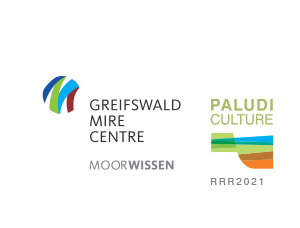RRR2021
Renewable resources from wet and rewetted peatlands
In the light of the Paris Agreement and the necessity to reduce all anthropogenic CO2 emissions globally to net zero around the year 2050, peatland rewetting and innovative land use concepts for wet peatlands are an important contribution to achieve the goal. The first two RRR conferences on the utilisation of wetland plants (paludiculture) were held in 2013 and 2017 in Greifswald. The Greifswald Mire Centre warmly invites you to continue this dialogue and to use the 3rd RRR conference as a platform for exchange.
Register now at participation fees of 60 EUR (regular) or 30 EUR (reduced). On the website you may find the detailed preliminary programme and many other information including technical instructions.
You can expect passionate keynote speakers in plenary sessions at the beginning of conference day 1 and 2. Altogether more than 100 scientific oral and poster presentations are divided over 21 parallel sessions. The session on Finance options for livelihoods from wet peatlands is co-organised with FAO, UNEP, IUCN and WWF. Excursions usually represent one of the most enjoyable and inspiring part of the programme when traveling to conferences. Since this part cannot take place, eight inspiring virtual paludiculture excursions will be presented. The workshops, literature evening, and an art session are some other highlights in the programme. Several booths in the virtual exhibition hall expose wetland-related products, techniques, and services. The virtual platform provides the best networking opportunities with discussion forums, open spaces, and face to face conversations to get in contact with scientist, practitioners, pioneers, and other experts from all over the world.
Please register here. Early bird registration and registration for (poster) presenters ends on 28th February 2021.
For questions, please contact .
Key topics
- Biomass to product
- Paludiculture and food production
- Paludiculture with trees
- Greenhouse gas emissions and other climate effects
- Water and nutrient dynamics
- Vegetation development after rewetting and biodiversity
- Regional and national transition of peatland use & socio-economics
- Stakeholders and acceptance
- Framework conditions and policy support
- Case studies
